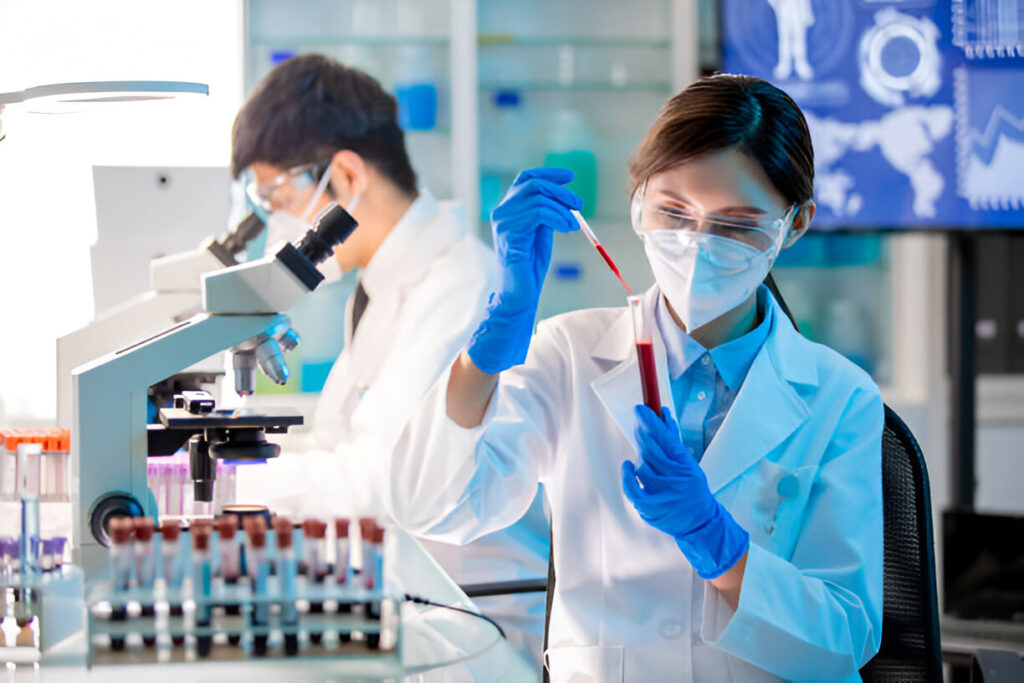When it comes to managing your health, understanding what’s going on inside your body is critical. Common diagnostic tests play a vital role in assessing various aspects of your health, helping doctors detect potential issues early, guiding treatment decisions, and monitoring ongoing conditions. But what exactly do these tests reveal about your health, and why are they important?
In this blog post, we’ll explore common diagnostic tests, what they reveal, and how they help maintain your well-being. From blood tests to imaging scans, we’ll explain what each test can tell you and why regular testing should be a part of your health care routine.
1. Blood Tests: The Most Common Diagnostic Tool
Blood tests are some of the most frequently used diagnostic tests. They provide a wealth of information about your general health and can help detect a wide range of conditions.
What Blood Tests Reveal:
- Complete Blood Count (CBC): This test measures the components of your blood, including red blood cells, white blood cells, and platelets. It can detect infections, anemia, and blood disorders.
- Lipid Panel: This measures cholesterol levels, including HDL (good cholesterol) and LDL (bad cholesterol). It reveals your risk for heart disease and helps doctors manage conditions like high cholesterol.
- Blood Glucose Test: Used to monitor blood sugar levels, this test is essential for diagnosing and managing diabetes.
- Thyroid Function Test: This evaluates thyroid hormones to detect issues such as hypothyroidism or hyperthyroidism, conditions that affect metabolism, energy, and overall health.
Regular blood tests are essential for early detection of many health problems. They provide valuable insights, enabling your doctor to prescribe the right treatment or recommend lifestyle changes.
2. Urinalysis: A Window Into Your Body’s Functions
A urinalysis is another common diagnostic test that checks for abnormalities in the urine. It can reveal a lot about your internal organs and metabolic processes.
What Urinalysis Reveals:
- Kidney Function: The test helps identify kidney diseases by detecting abnormal levels of proteins or blood in the urine.
- Urinary Tract Infections (UTIs): Bacteria and white blood cells in the urine indicate the presence of an infection.
- Diabetes Monitoring: High levels of glucose in the urine may signal diabetes or poorly controlled blood sugar levels.
Urinalysis is often used as a screening tool during routine physical exams and is a vital part of monitoring ongoing medical conditions like diabetes and kidney disease.
3. Imaging Tests: Visualizing the Inside of Your Body
Imaging tests are diagnostic procedures that allow doctors to view detailed images of your organs and tissues. These tests are invaluable in diagnosing a wide range of conditions.
Common Types of Imaging Tests:
- X-rays: Often used to examine bones, joints, and teeth. X-rays can reveal fractures, arthritis, infections, and tumors.
- Ultrasound: This test uses sound waves to create images of soft tissues, such as the heart, liver, and reproductive organs. It’s commonly used during pregnancy to monitor fetal development and for diagnosing conditions like gallstones or liver disease.
- Magnetic Resonance Imaging (MRI): MRIs provide highly detailed images of organs, soft tissues, and the nervous system. They are frequently used to diagnose conditions like brain disorders, spinal injuries, and joint issues.
- Computed Tomography (CT) Scan: CT scans combine X-rays to create detailed cross-sectional images of the body. They are commonly used to detect cancers, heart disease, and internal injuries.
Each of these imaging tests offers different insights into your health. They are essential in diagnosing, monitoring, and even guiding treatments, such as surgery or cancer therapies.
4. Electrocardiogram (ECG): Monitoring Heart Health
An electrocardiogram (ECG) is a simple and quick test that records the electrical activity of your heart. It’s one of the most common diagnostic tests used to assess heart health.
What an ECG Reveals:
- Heart Rhythm: It can detect abnormal heart rhythms (arrhythmias) that may indicate underlying heart conditions.
- Heart Attack Detection: ECGs are crucial in identifying past or ongoing heart attacks by showing areas of the heart muscle that aren’t receiving enough blood flow.
- Heart Disease: This test can detect signs of coronary artery disease, where the arteries supplying blood to the heart become narrow or blocked.
Regular ECGs, especially for those at risk of heart disease, can help prevent major heart events by identifying problems before they become severe.
5. Mammograms: Screening for Breast Health
A mammogram is a specialized X-ray used to detect breast cancer in women. This test is typically recommended for women over the age of 40 and is crucial for early cancer detection.
What a Mammogram Reveals:
- Breast Cancer: Mammograms can identify tumors or abnormalities in breast tissue, often before they can be felt during a physical exam.
- Calcifications: These are tiny mineral deposits within breast tissue that can sometimes indicate cancerous changes.
Mammograms are an essential part of routine health care for women and can significantly increase the chances of catching breast cancer in its early stages, when it’s most treatable.
6. Pap Smear: Screening for Cervical Health
A Pap smear is a diagnostic test used to screen for cervical cancer in women. It involves collecting cells from the cervix and examining them under a microscope.
What a Pap Smear Reveals:
- Precancerous Changes: The test can detect abnormal cells that may become cancerous if left untreated.
- Human Papillomavirus (HPV) Infection: HPV is a common viral infection that can lead to cervical cancer. Pap smears help detect HPV-related changes in the cervical cells.
Regular Pap smears, typically starting at age 21, are crucial in preventing cervical cancer by identifying precancerous changes early.
7. Bone Density Scan: Monitoring Bone Health
A bone density scan, also known as a DEXA scan, measures the strength of your bones. This test is especially important for older adults and postmenopausal women, as they are at higher risk of osteoporosis.
What a Bone Density Scan Reveals:
- Osteoporosis: The scan identifies weakened bones and helps assess the risk of fractures.
- Bone Loss Progression: It can also track bone loss over time, enabling doctors to recommend treatments like medication, supplements, or lifestyle changes to prevent further weakening.
Why Regular Diagnostic Tests Matter
Diagnostic tests are a cornerstone of preventive health care. Regular testing can catch potential health issues before they become severe, ensuring that you stay ahead of any emerging conditions. Early detection leads to better outcomes, more treatment options, and often, less invasive interventions.
These tests also allow for continuous monitoring of ongoing conditions. For instance, someone with diabetes will need regular blood glucose tests to manage their condition, while someone with heart disease may require frequent ECGs to track heart health.
Conclusion
Common diagnostic tests are essential tools in modern health care. From blood tests to imaging scans, these procedures provide critical information that can reveal much about your overall health and help doctors make informed decisions about your care. Regular diagnostic testing is key to maintaining your well-being, preventing illness, and catching conditions early when they are most treatable.
To learn more about how you can take charge of your health, check out our comprehensive guide on preventive healthcare.
If you’re interested in more detailed information about diagnostic tests, visit the official Mayo Clinic website.
By staying informed and prioritizing regular diagnostic testing, you can safeguard your health and ensure a longer, healthier life.




